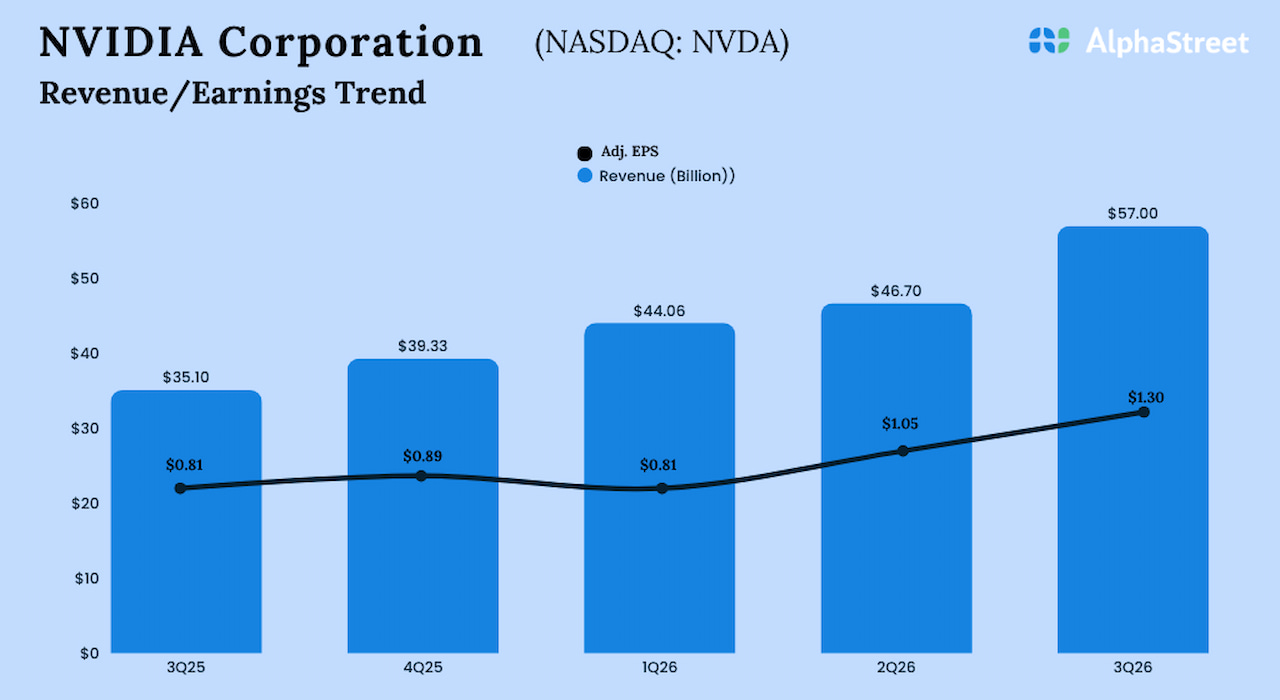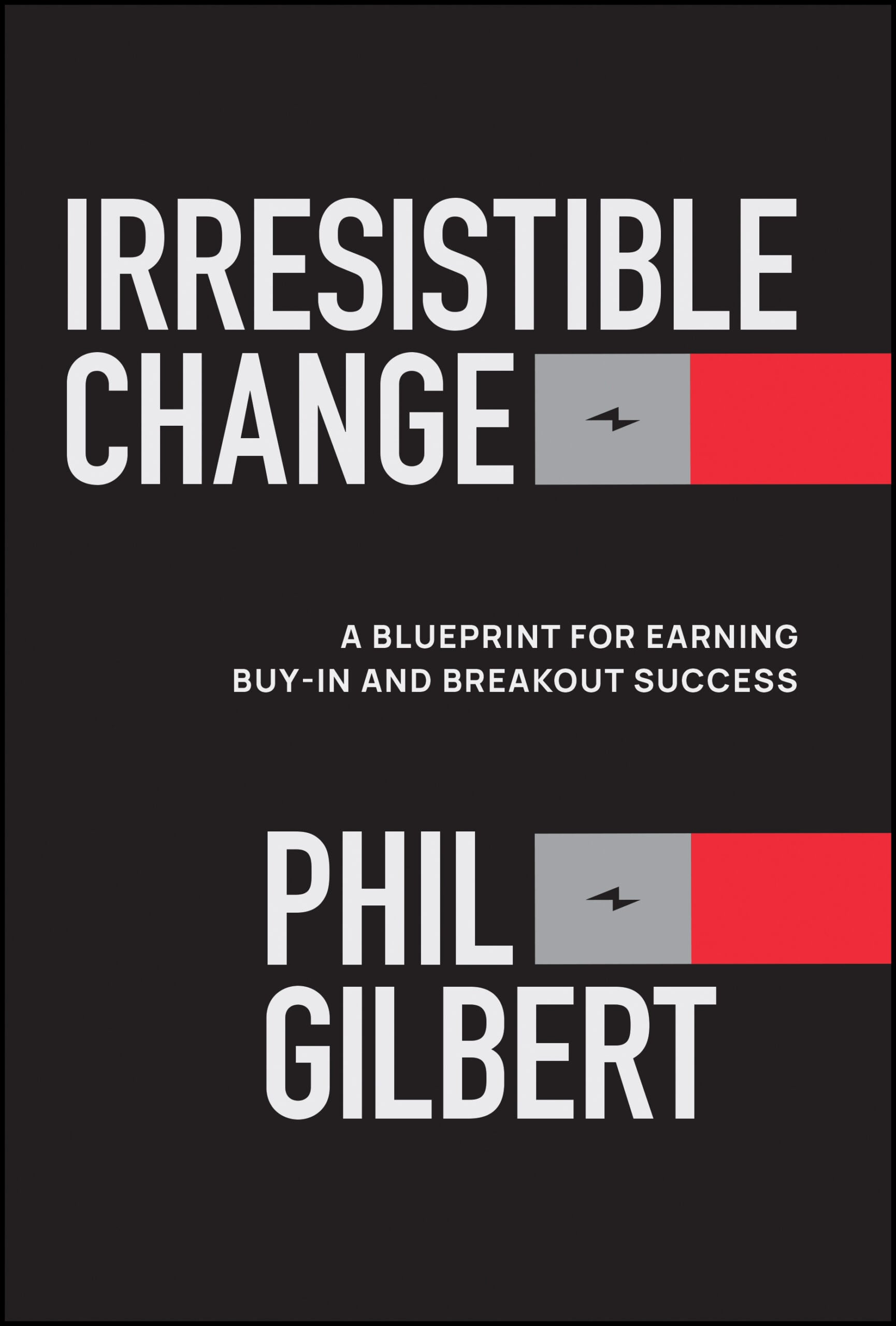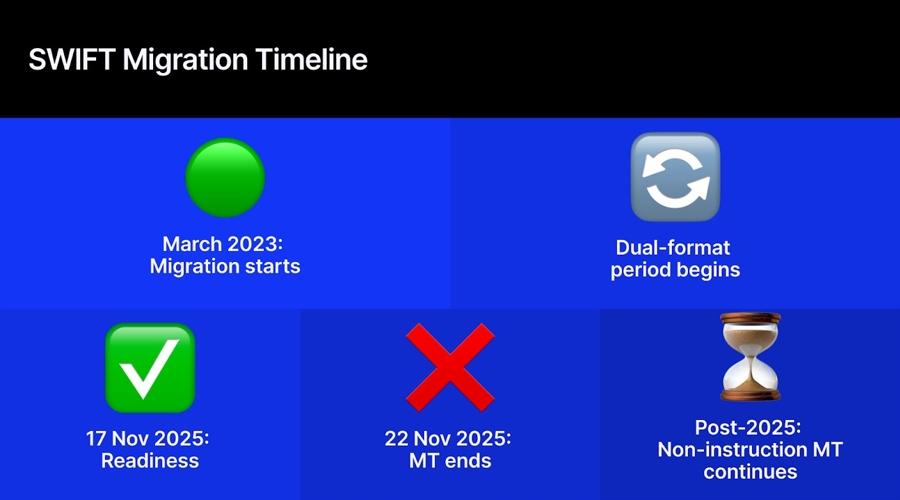Dollar-cost averaging is advice we’ve all been given. But, during a crash, or even a dip, it can be enticing to throw all your savings into an investment with hopes that it’ll quickly skyrocket back up. Is this a smart move, or would this ruin the “consistent investing” advice altogether? To help clear things up, we’ve brought on Nick Maggiulli, author of Just Keep Buying: Proven ways to save money and build your wealth.
Nick, just like Dave, has been a spreadsheet freak for a long time. They bond over their love of data and how looking at the numbers can help you make much better investing decisions. In a time where FOMO-investing, financial freak-outs, and anxious feelings toward inflation run rampant, Nick provides some soothing words on how any investor in any asset class can successfully start building wealth with little-to-no effort.
Dave, Nick, and expert guest Henry Washington also riff on REITs (real estate investment trusts), real estate investing, and advice for new investors. Whether you prefer stocks, bonds, rental properties, crypto, or a mix of all four, this episode will provide some much-needed advice for you to make it through the recession with far less stress.
Dave:
Hey everyone, welcome to On the Market. I’m your host, Dave Meyer, joined today by Henry Washington.
Henry:
What’s up, bud?
Dave:
What’s new, man? What have you been up to?
Henry:
Oh man, I am getting ready to hit the road doing some traveling obviously. So, that’s what I’ve been focused on, but glad to be here chit-chatting with you. I always love talking about real estate and finances.
Dave:
Yeah, that’s a good time. Can you tell the audience a little bit about who we’re talking with today?
Henry:
Yeah, today we got to talk to Nick Maggiulli, and he was giving us a lot of great information about how he is investing in the stock market, about how he can or about how we can invest in real estate through the stock market, and really gives us some great advice about how to invest, even given this current… really given any economic environment, right, there’s always a way we can be investing, and he gives some great perspective on the things that we should be thinking about as we’re starting to build wealth.
Dave:
Exactly. Yeah, I think the stuff he was talking about, particularly around risk and mitigating risk was super cool and really transferable between the stock market and real estate investing. So, even if you’re not an active stock market investor, you have a little bit of money in there, pay attention to this. I learned a ton because his just philosophy about how to invest for the long term, how to mitigate risk and be successful over the appropriate time horizon, I think can apply to any asset class. So. I love talking to Nick. Well, you probably know that. His blog’s called Of Dollars and Data, so it’s clearly a kindred spirit of mine.
Henry:
Absolutely. But in all honestly, that data-driven aspect of looking at investing really takes the emotion out of it. The one thing I know about investing in real estate and the stock market is that it can get super emotional. With real estate, you can get tied emotionally to the assets that you’re looking to invest in, and with the stock market, you can definitely get emotionally tied to seeing that number go green or red, right? And so, looking at or listening to how he takes data and uses that to make decisions or inform his decisions, inform his long-term investing strategy really helps you take the emotion out of it, and in all honesty, that’s one of the big keys to being a successful investor in any asset class.
Dave:
Very, very well said. Well, let’s bring Nick in, but first we’re going to take a quick break. Nick Maggiulli is the chief operating officer at Ritholtz Wealth Management, the owner and author of a blog called of Dollars and Data, and the author of the book Just Keep Buying. Nick, welcome to On the Market. Thanks so much for being here.
Nick:
Thanks for having on guys. Appreciate it.
Dave:
So, Nick, can you tell us a little bit about your position at Ritholtz Wealth Management and what your blog and book are all about?
Nick:
Yeah, so at Ritholtz, I’m actually in a operations role where I’m kind of doing data science, business intelligence. As I would say, I’m getting data across the firm and then using that information, giving it to key decision-makers so we can make decision about what we want to do next, how we’re closing business, et cetera. That’s all that type of stuff, right? So, it’s really kind of an operations role. It’s very different from the stuff I write about which obviously I still use data. Data is the key theme here, right? Of Dollars and Data’s the name of the blog, but I’m basically just using data to get insights and make decisions, right, and that’s the same thing I’ve done with personal finance and investing.
And so, even though I do, I say the books a data-driven guide to personal finance, it’s very accessible. You’re going to be able to read it. My 75-year-old grandmother read it and she said she could understand like 80% of it and she’s someone who’s never invested in her life. So, I will take 80% from a inexperienced, 75-year-old over anything else. I try to make it really accessible for people, but I do try to use a lot of data to make a lot of the arguments that I make, and we can get into some of those, we can talk about that more broadly, but that’s my shtick, so to speak.
Dave:
And in that operating role, you’re mostly talking about equities, like the stock market, right?
Nick:
Yeah, so I’m saying, and in the operations role I do, yes. We invest, yeah, we’re basically index investors. Obviously we have some proprietary stuff we do with trend following. We have some other things we have that you can’t get everywhere else, but for the most part, we’re not trying to beat the market, right? As a wealth management firm, I think we’ve recognized, you look at the evidence, beating the market’s very difficult. And so, we’re saying, “Hey, we’re not going to be the people that beat the market. We’re just going to kind of go and try and match the market return as best we can,” and we’re thinking about someone’s long-term financial plan, right? It’s not like, oh, if you beat the mark by 1% or 2%, whether you’re going to make it or not. That’s really not the issue, right? It’s more about what’s your long-term plan? Are you going to be able to reach your financial goals? And so, it’s very personalized in that way.
Dave:
And in any of these roles that you have, which there are many, how involved are you in real estate investing?
Nick:
So, real estate investing, I think for me, I haven’t done much historically. I mean, I do own REITs, and that’s my main exposure to real estate because, one, I want to be diversified. So, if diversification’s your key thing, to be diversified and actually own physical real estate, it requires a lot more capital. Unless you’re not doing a REIT, if you’re not doing real estate investment trust. So, that’s one thing to keep in mind. So, given that, I haven’t been able to go and buy a bunch of properties. I couldn’t have a diversified real estate portfolio without having either most of my money in there, and then it would be in locations where I would have to have a manager doing it. I live in New York City. I cannot afford a diversified real estate portfolio in the city. So, because of that I own REITs, right?
So, that’s the main takeaway there, and I think there’s still ways you get exposure to that. It’s interesting in its own right, and I think owning real estate’s great, and if you’re living somewhere else, you’re not living in a very high cost area, it’s much easier to do. There are constraints in this type of thing, and that’s the thing. When I’m thinking about real estate, that’s how I think about it.
Henry:
Yeah, man, I like REITs, and I think there’s some great ways to invest in REITs and still get both appreciation and cash flow. But for our audience, can you talk a little bit about, or just define what REIT is and how that relates to real estate investing?
Nick:
Yeah. So, REIT, it’s a real estate investment trust, and I can’t remember what year, there was some law that was passed that basically said these things can exist as a vehicle where it’s usually commercial property. There are sometimes are residential REITs as well. But just imagine all the office buildings in let’s say New York City, San Francisco, et cetera, there are companies that own a lot of these office buildings, and they lease them out, and they get paid revenue obviously, and they have costs, et cetera. But legally, a REIT has to pay out 90% of its profits as dividends to its shareholders, right? And so, because of that, that’s why this is a vehicle where you can actually have some exposure to real estate.
And so, obviously REITs didn’t do that well obviously during COVID because a lot of these places they weren’t going to re-up, et cetera, but now they’ve started. I mean, right now everything’s down badly. So, it’s hard to say whether they’re starting to come back, but the market is starting to come back for that. You’ve heard about people returning to office. It’s still not where it was obviously pre-COVID, but it is something that’s where you have exposure to this, right? And I think the main thing when I think about REIT is just the diversification. As I said, it’s interesting to me how people buy real estate because usually you buy real estate, let’s say you bought off a $500,000 property, right? You put $100,000 down and then the other 400,000 is financed typically. You wouldn’t go and do that with a stock, right? You wouldn’t go and put $500,000 into Apple, but people do this regularly with real estate. And so, it’s very interesting.
Of course, I know stocks are far more volatile. There’s a host of other things that why these two asset classes are different, and so, the leverage piece, that it’s okay to lever in real estate. It’s accepted and normal, but it’s not, no one’s going to give you $400,000 to buy Apple. So, it’s interesting to me that difference, that distinction. But it is still like no one cares as much about the diversification properties, I guess, when you’re buying real estate, and I try to care a little bit more about that because you never know. Any one property, anything can happen, especially if it’s an investment property. So, I’m like, “What can I do to get more diversification?” So, yes, if I had a lot more capital, I would probably be owning individual properties instead of just REITs, but for now, for smaller investors, people are starting out, that’s the way that I kind of get involved with it.
Henry:
I think REITs are great, and what’s cool about REITs is, yes, you can diversify by still investing in real estate through a REIT, but there’s also different real estate asset classes REITs, right? So, you can have a REIT that is in commercial real estate. You can have a REIT that’s in storage facilities. You can have a REIT that’s in residential single family real estate. And so, there’s tons of different REITs out there, and one of my favorite things about investing in REITs is that some of these REITs pay dividends, right, which is what you get paid just for owning the stock. And so, that kind of mimics cash flow in a way, and so, if people are interested in real estate investing and truly want real passive income, there’s no tenants to manage, somebody else’s doing that, then you get paid to dividend, and then you can still get appreciation from the stock value going up over time. And so, do you have any insight as to what types of REITs are your favorite or that you’re investing in or that maybe a new investor could look into?
Nick:
Yeah, so I don’t actually dig that deep into REITs in terms of which ones this, that, I could go into storage, or you could even talk about farmland. Farmland’s another, technically it’s a kind of REIT. I mean, you would say is that more land than real estate, right? I mean, we’re starting to cut hairs here, and so, I haven’t done that level of due diligence, or to be honest with you, and I don’t really, because for me it’s like I don’t care. It doesn’t matter as much right now, especially if you’re a small investor. Those differences are tiny. And so, when I first started investing I was like, “I’m just going to set up something, get on that path and start going and then once I have more capital, I can start to optimize that more.” And that’s something I probably should look into a little bit more, but I don’t know as much of, like I’m usually doing commercial and residential REITs for the most part, but I think going forward, yeah, that is something I could definitely look into.
But, yeah, I think that’s a big point I try to make, at least in my personal finance writing. It’s like for a lot of people, if you’re just starting out right now, it doesn’t really matter all that much, and I can just give you a simple example of this, right? It’s from the first chapter of my book, Just Keep Buying. When I was 23 years old, I sat and analyzed my investments every possible way, but I wasn’t realizing I only had a thousand dollars invested at the time. Even a 10% return’s a hundred bucks. I was going out every weekend and blowing that a hundred dollars on Ubers and shots and dinner, right?
So, all those hours were kind of for nought. Of course, it’s useful to have knowledge. I’m not saying you shouldn’t study or shouldn’t care about stuff. That’s not what I’m getting at. I’m just saying you can sit here and pick this and that and if you have 10 grand to invest, it’s not going to move the needle enough. Now, if you have a hundred thousand, if you have half a million, a million, you can start to seeing all those little differences will make a big impact. So, it just, it’s about where you’re starting, right?
So, if you’re starting out with just a little bit of capital, honestly it’s not going to really matter all that much which REIT you pick. Obviously, assuming there’s this overarching upward trend in REITs, so obviously if real estate gets wrecked, you happen to pick the one sector that gets destroyed, then yes, that’s not true. But generally, I mean assuming these things move together in some way that is correlated, then that’s not something you’re going to have to really worry about too much. But I do think if you’re interested in that, then yes, you should dig into it and figure out which one you prefer and why, but I’m not spending all this time digging into that.
Dave:
That’s such a good point about people just analyzing, spending so much time to analyze whether they’re going to make 90 or $95 next year off their investment accounts. It’s hilarious. Henry, for me using REITs, I use it as like my FOMO outlet when I’m getting jealous about someone who’s in this investment class that I don’t have the time or energy to invest in, like self-storage. I think a lot of people know it’s a great, great thing. I haven’t gotten into that yet, but I buy self-storage REITs because I just want to feel like I’m a part of it even though I’m not really a part of it. But if you think, yes you are, but not in the real way.
Henry:
Yeah. No, I totally agree. That’s how I started investing in crypto is out of FOMO, and now I love it, even though my portfolio’s down 800,000%.
Dave:
Nick’s probably like, “Who am I talking to? These two idiots who are talking about investing for FOMO.”
Nick:
No, I mean, honestly, everyone gets FOMO. Trust me, I’m the person that says, “Buy income-producing assets mostly. Don’t touch any of this other stuff.” So, 90-something percent of my portfolio’s in income-producing assets which is stocks, bonds, real estate, farmland, et cetera, whatever. I bought some all coins at the beginning of this year and those things were down like 70% within three months, and I was like, “Why did I…” But I only put, I put like half a percent of my investible net worth. So, I am risk hedging. I am saying, “hey, if I’m going to do something crazy, I’m going to do it with a little bit of money relative to my portfolio where it doesn’t really matter.”
But it’s just the philosophy of should I have done that? No, I lost a couple grand. I actually wrote a blog post about this. There’s this place called Masa in New York City, it’s like the most expensive place you can go to. So, a dinner for two, you’d spend like $2,300 or something. That happens to be exactly how much I lost. I was like, “I rather would’ve done that than lost $2,300 in all coins.” But that’s a side note.
But just going back to that point you just brought about people spending all this time, imagine you had $10,000 to invest, and let’s say all this research you’re going to do is going to get you an extra 10% return. Let’s say normally you’re going to get a 10% return, now you’re going to get 20. Now, remember that’s a big assumption, but I’m trying to make this kind of extreme to show my point, right? So, let’s say you spend 10 hours a week doing this, and you do this 50 hours a week, so you don’t do 52, I’m just trying to make the math easy. So, you do this for 500 hours a year, right? 50 weeks times 10 hours, and on $10,000 a 10% return is a thousand bucks. So, by doing all this research, you added another 10%. So, you added another thousand dollars but you spent 500 hours to do that. Do the math on that. That’s two bucks an hour. You would have been better going to McDonald’s and picking up a side shift.
A lot of people are like that, and of course, if you had a million dollars or a billion dollars, that 10% is huge, but most people don’t have that type of capital where it’s going to actually move the needle, right? So, even if you had a hundred thousand dollars doing that, every hour you spent is only 20 bucks an hour. Now, that’s obviously better than McDonald’s, but still you kind of get my point. Of course, if you can do that for many years, you’re the next Warren Buffett basically. Most of us aren’t.
Henry:
With that in mind, there’s tons of people out here who are interested in the stock market, want to diversify their real estate assets into something else, and they don’t have that time to put in. What’s your suggestion or recommendation on how they should get into REITs or the stock market, or how should they spend their time researching? How much time is enough time and then how do they dive in?
Nick:
Yeah, I would say just buy passive, low-cost funds. I can’t name tickers for compliance reasons, but if you just search low-cost ETFs and you start just doing… I mean, honestly, with five hours of research, I think most people could find the names of the low-cost ETFs. I don’t think it matters all that much which one you pick, and you just pick some allocation that makes sense for you. Obviously, that’s the hard part, like should I have 10% in bonds or 20 or 40 whatever. You pick some bonds, stock, REIT mix, you put it in there, and then you kind of wait. And what do you focus on? You focus all that attention on how do you grow your income. That’s where it’s at because honestly, at the end of the day, it’s much easier to save money when you have a higher income. You don’t need to budget when you have enough money, right?
And so, of course, there’s the people who are like, “But I know a guy that makes five times more than me and he spends it all.” Yeah, that’s a personal problem that he has, but that’s not most people, right? I love how there’s all these people that talk about celebrities that went bankrupt, and we can name them or whatever, maybe Mike Tyson or Lindsay Lohan or Nicholas Cage, whoever, you can name you’ve heard, maybe they went bankrupt once and they came back, I don’t know, but you’ve heard about these things, right? And I’m like, “Okay, so you just named five celebrities that went bankrupt. Guess all the celebrities that…” I have every other celebrity. Your in is five, you have five data points? I have every other celebrity minus those five because none of those people went bankrupt. Why? They buy income, right?
Yes, you can be reckless, but most people aren’t reckless, and so, since most people aren’t reckless, most celebrities still have wealth, right? So, it’s funny when you look at it that way, but that’s kind of an example of where should you be spending your time, and it’s figuring out ways to grow your income, and there’s a lot of different ways we can do that. But if you guys want to get into that we can, but if not, that’s my take on what people should be doing with their time.
Dave:
I think that’s a problem. Well, I don’t know if it’s a problem, but it’s a common thread in real estate investing is a lot of people who get into real estate investing do it because they’re interested in the financial independence movement and want to quit their jobs and focus on getting income from their investments in an effort to replace their job. I personally have always taken the approach that I’m just going to keep my job and invest for as long as I can hold on to both because that’s probably the best place to be coming from is to get income from more than one place.
Nick:
Of course, yeah, and that’s the point of raising your income so you can save that money, get it invested, and have that investment pile or those assets paying you, right? So, over time, I mean, I actually in the first chapter, as I said, I’m not trying to, it is just so relevant for this because I have something called the save-invest continuum, and basically it’s like when you start out, basically all the money you can earn is from your labor, from where you’re working. So, let’s say you could save five grand a year, and if you’re starting with zero investments, your investments are going to earn you zero a year, right? But over time as you start throwing money on that pile, that number starts going up, and in theory one day that number’s going to pass the other one.
We’re in a good year, let’s say, let’s just make the math easy, let’s say in a good year you expect a 10% return. Of course, I think it’s a little high, but let’s just say 10% make it easy. If you have a hundred thousand dollar investment portfolio, that means in a good year you should make about 10 grand. Now, the question is can you save 10 grand in a year or not? And so, eventually at some point, once you have enough assets, you’re going to be able to save, you’re going to earn more money from your investments than you could ever earn from savings, right? Just imagine someone with 10 million bucks, right? A 10% return’s a million dollars. For you to save a million dollars in a year, it’s like you have to have a super, super high income, super high savings rate. Most people can’t do that, even people with high income. So, it just goes to show what matters when in life.
Henry:
Yeah. What I like about what you’re saying and I completely agree with is that, well, first, there’s no magic secret sauce. The same principles apply across different investing avenues. It’s if you buy at the right time and you hold for the long term, essentially you’re going to do yourself justice by providing a valuable return. In real estate, the longer you hold an asset, the more value you’re going to essentially bring in. It’s the same thing if you’re looking at stocks. That’s why with my portfolio I do the same thing. I’m just buying quality stocks, quality ETFs, and then I just hold them. I just hold them. My plan is 10 years, and then if you zoom out of any ETF chart for 10 years, you’re probably going to see some level of growth, right? And so, I’m just keeping those odds in my favor by buying and holding for the long term. I’m a buy and hold investor with real estate. Same thing with the stock market.
Nick:
Yeah, exactly. I couldn’t have said it better.
Dave:
Well, that brings me to a good question, Nick. One of the reasons I was so excited to have you on is you talk a lot in your writing about a principle called dollar cost averaging. Could you tell our audience a little bit who may not have heard of this concept what that means?
Nick:
Okay. Just to get this out there, if you search dollar cost averaging, there are two different definitions and they mean different things. So, we need to specify that?
Dave:
Really?
Nick:
Yeah.
Dave:
I didn’t know that.
Nick:
Yeah, I will explain both of them. I will tell you the original definition which came from Benjamin Graham which was Warren Buffett’s mentor and he’s known, he wrote Security Analysis, Intelligent Investor, all that, right? So, the original definition is just buying over time, and typically what that means for most people is if you have a 401(k) or something, every time you know get paid, you’re buying, you’re investing money in your 401(k), or every time you get your paycheck, you take some money out and then you put it in and you buy a stock or an ETF or whatever. That’s dollar cost average, simply just buying over time.
The problem is there’s also another definition which is called dollar cost averaging is where you have a big lump of cash right now. Let’s say you sold a business, you had inherited something. It doesn’t matter how much it is. I’m just going to use a large number, like $100,000, right? You have $100,000 sitting there because you sold a business or you got inheritance, and now you want to put that money into the market, you want to invest. So, the question is do you put it in now or do you slowly kind of average into the market, as I would call it, but some people call that dollar cost averaging. Now, you can see how there’s a confusion because the first definition is you’re buying as soon as you get paid, right? The second definition requires you to wait, to hold cash and wait on the sidelines and slowly wade into the market.
So, when we’re talking about dollar cost averaging, we need to be careful which one we’re talking about because they can kind of mean different things. One is about investing as soon as you can. The other one’s about taking risk off the table by saying, “I’m going to slowly wade into the market and get all my money invested,” because people are afraid of putting all their money in, and then the market crash. And so, that’s why people say, “Okay, I’m going to dollar cost average into this market.” I don’t like using that definition, the second one, because I don’t agree with the principle. I think generally if you look at the data going in now and sooner is the better thing to do, and behaviorally, the only time that averaging in makes sense is when the market’s falling actually. That’s the only time that you outperform is because obviously if you put in all in now and it crashes, you know would’ve been better off if you would put in slowly, right? So, that’s the main takeaway there.
But, yeah, so just in terms of dollar cost averaging, I like it because it’s a simple behavioral tool that you can use to build wealth. It de-risks a lot of stuff because, I mean, we always talk about all these markets that are like, oh my gosh, imagine buying in December ’07 and then ’08 happened, it would’ve been terrible, or imagine buying in February 2020 and then March 2020 happened. So, people always talk about these things, and it’s like, okay, that’s true in snapshots, but most people don’t even invest that. Most people are buying over time. So, the more you’re buying over time, the more you can kind of de-risk that, and it’s a very different thing.
I think the most extreme example, for those that don’t know about the Japanese stock market had the biggest asset bubble in probably human history, definitely the biggest real estate and stock market bubble, and it’s still below where it was in like 1989. That’s one where it kind of peaked in ’89, it’s still below that, and it’s been over 30 years. And the question is, people look at that and they say, “Look, stock market, not all stock markets are great. Look at Japan went nowhere for 30 years basically.” And it’s like, yeah that’s true if you put in all your money at the peak, but how many people did that? Most people don’t invest like that, and if you had actually put money in over time into the Japanese stock market, it was not a great return, don’t get me wrong, but you’re not down 30 years later. You’re actually up a little bit. I agree, it’s not great, but it changes the story a little bit when you’re dollar cost averaging versus following other methods.
Dave:
So, is this dollar cost averaging the sentiment behind your book which is called Just Keep Buying?
Nick:
Yeah, I mean, if I had to give you… This question is if I have to give you investment advice, and this is kind of if you think about how I think when we’re trying to write stuff and convey messages, you want to try and give it in as few words as possible. What’s the main takeaway to grow your wealth? And it’s just keep buying. The subtitle is Proven Ways to Save Money and Build Your Wealth. But if I had to give you a sentence, I would say it’s the continual purchase of a diverse set of income-producing assets. That’s the mantra, the continual purchase of a diverse set of income-producing assets. So, if I could give you that, if I could give you a paragraph, I could go further then. If I needed to give you a chapter, if I had to give you a whole book… You see what I’m getting at? It’s like I’m trying to make it so it’s just as simple as possible.
Just keep buying is easier to say than dollar cost averaging. Just keep buying is the psychological motivation built in. It is the core philosophy that everything else is built off of. But yeah, and there’s data for it. That’s the other thing too. If you look at any 10, if I was looking at rolling 10-year period since 1926 and you had just been buying every single month for a decade, there’s a 98% chance you would have beaten cash and there’s a 83% chance that you would have beaten a five month, or I’m sorry, a five-year treasury. So, if you’re going to beat, it’s like yes, there’s a 17% chance you wouldn’t have beaten bonds and that’s a 10-year period. The longer you take that period out, the probability of winning goes up and up and up. So, that’s the kind of takeaway there. That’s the kind of message I want out there is it’s data-driven, it makes sense, and it’s going to work for most investors.
Dave:
Do you think this principle of dollar cost averaging can work for people who are exclusively, or primarily, I should say, buying active real estate investments?
Nick:
I think it can, but you need to have a little bit more money. You need to be a larger real estate investor, and the reason I say that, or you have to be able to find markets that are very cheap. Depends when we talk about real estate, if you can buy, for example, storage facilities for much cheaper than you can buy single family homes or something, it’s really about the position sizing, right? Let’s say a single family home right now in the US, I don’t even know what the median price is. Let’s just say it’s like-
Dave:
400.
Nick:
Yeah, I was going to guess that actually, $400,000, something like that, and it jumps. It used to be 300 but then it would shot up now, and maybe it’s coming down a little bit now. So, at $400,000 you have to put up 80k every single time doing 20% down every single time you’re doing one of these deals, and so, it’s like to drop $80,000 in cash on a consistent basis is not easy, right? So, because of that I would say that’s not really doable for most people. Obviously, if you have the capital, do that, then yes you could be DCing into real estate by buying this property, then buying that property, et cetera. But that’s the really only constraint, otherwise you could DCA in via REIT, right, and that’s another way of kind of getting that because it’s really just position sizing. In theory, these are the same thing but we’re just talking position sizing here.
Dave:
Yeah, it’s interesting because I agree with you, and I think it is difficult for people to wrap their head around putting down those large down payments, and on this show and other parts of BiggerPockets, we do talk about creative ways that you can borrow money, partner, that sort of stuff. But I think the sentiment I’ve always personally sort of used around buying real estate and is similar to dollar cost averaging is not trying to time the market. Even if it takes me two years to save up the money for a down payment, as soon as I have the money to try and reinvest it, and you’re talking to Henry and I are both primarily real estate investors but that… Do you think that same sentiment applies? I get that it’s a lot harder, and you’re probably not diversifying, and the math is probably a little bit different about mitigating risk, but do you think that makes sense for real estate investors?
Nick:
I mean, yeah, that’s one way you could do it. I mean, if you want to do… Because everything’s preferences, right? That’s another thing too. It’s like people talk about preferences a lot and why I or someone else may not want to do individual real estate as much as someone else because maybe you know a lot about it, maybe you like managing tenants, maybe you understand a lot about how to fix stuff. You have certain skills that me as a real estate investor wouldn’t have, and so, that gives you an edge over. If we were both in the same market because you know how to do all these other things or you have good contacts that you could use for fixing and maintenance and all that and I don’t, it’s going to be much more difficult for me to outcompete you, et cetera. So, there’s just a host of reasons why that can be beneficial.
But, yeah, I mean, that’s a way to do it. You have to save up for a down payment and then get another one and then get another one, and go from there, right? It’s all about your preferences, right? So, if you enjoy the process of owning the physical property and being there and seeing, it’s very different. I understand why index funds can feel so impersonal because it’s just a number and an account or something versus wow, this is a physical property that’s here. It’s not like I walk into an Apple store and say, “Well I’m a technical part-owner of this store since I own Apple shares through this ETF so you guys have to…” No, even though that’s technically true, I mean, I am technically a part-owner of Apple, just like I’m guessing almost everyone listening to this who owns any ETF that owns S&P 500 or an Apple share or whatever. But you get my point. I don’t feel the same as no, I am the owner of this property, period. You clearly can do anything you want.
So, I think that’s the difference. I understand some people like that psychologically, so I have nothing against that. But yeah, I think that’s a great method. I mean, either way, you’re saving up cash to then buy. You can’t buy in increment. It’s not like you can say, “I’m going to just put up a little bit, the first 10,000, the down payment before I get the next 70,” or whatever, right?
Dave:
Right.
Nick:
So, it’s one of those things where you have to do it in these big chunks as you get enough money to chunk it and do that, right?
Dave:
Well, I mean, it would be great if they gave us a employee discount for owning Apple shares. That would be really nice. But I should mention, full disclosure, Fundrise is a sponsor of this, but there are new sort of real estate investing opportunities, crowdfunding stuff like Fundrise where you can start to do that, if people are interested in that. But yeah, I mean, right now, we’re mostly talking about traditional buy and hold and totally get that. A big part of what drew me to real estate investing was the entrepreneurial element of it. I like being an entrepreneur. I like figuring out the problems. It’s enjoyable for me and totally agree. It’s just different personalities and what you want to do with your time.
Henry:
You guys don’t walk into Apple and just show them your stock portfolio and then demand free stuff. Is it just me?
Dave:
Yeah, I just walk into the stock room and pick stuff off the shelf.
Nick:
I was like, “I was just talking to Tim, yeah, Tim told me that,” I’m just going to take this and just walk out. See how that works out for you. Okay, well, I just, I’m now recording on a podcast telling people to commit crimes if they are shareholders of Apple and I would never do that. So, for the record, I did not say that.
Dave:
Yeah, Nick is legally not liable. [inaudible 00:30:01]
Nick:
You cannot do what I just said. You cannot do that under any circumstance.
Dave:
So, is it hard right now in this type of economic environment to stay the course on this type of strategy?
Nick:
I mean, I think the question is which market are you in. I think generally I would say it’s tough for people because we haven’t seen it. We’ve seen crashes before, yes. I mean, of course, it’s been a while since… I mean,” excluding the COVID crash, the last big one was ’08, and so, we’ve had just a bunch of little ones, but now we have inflation which changes it too because now your costs, the cost line’s going up, the revenue line’s going down in theory from your investment portfolio, right? So, it’s like, wow, that’s not a good look, not a good place you want to be in, right? So, I understand why that’s difficult. For me, I just, I don’t worry about that type of stuff because I think about history, and history to me is like the more you’ve studied history, the more you see we go through this stuff over and over and over again.
For example, right now, next week I’m going to Italy with my family the first time, my dad and my sister, all the Maggiullis are going out there. We’re kind of returning to the homeland or something, the first time we’re doing all this stuff, and in Florence they have these little thing called wine windows or they’re called, I think they’re called bachelorettes or something, I don’t know the exact term, but there’s these little tiny windows that are in these buildings and someone’s telling me or watching a video and they’re like, “Yeah, during the Black Plague, they would use these little wine windows to kind of sell goods because they didn’t want to come face to face and possibly catch a disease.” And apparently during COVID, they started reusing these windows which had not been used for years because why would we need these, right? And so, when you think about this you’re like, “Wow, history does repeat itself in these weird ways.”
And so, yes, there is going to be periods where stocks don’t do well or real estate doesn’t do well, et cetera, and there’s be periods, there’s going to be even… For example, this could be the beginning of a long decade of US stocks just going sideways, honestly. It could happen, right? They could go down much more and then rally back. Who knows what’s going to happen? But this type of stuff, it’s par for the course. It happens regularly. We’re not going to be hitting all-time highs every single year. And if you think that, it’s like that’s just not true. I mean, 2019 was a great year, 2020, we still end up positive despite all the madness in the beginning of the year, right? 2021 was an amazing year. So, we had these three great years, and now we’re down like 23% as the time of this chat. And so, yeah, we’re probably going to end the year down, and how down, I don’t know. Maybe 20%, maybe less, who knows?
And so, that’s kind of the question, and so, I think that’s the tough part, and I think for real estate investors specifically right now, rates, rates are everything right now. And so, if you’re thinking of investing based on… A lot of people are going to think in terms of payments, right? When rates are low, you can afford a higher payment which means you’ll pay more for a house, and now that rates are high, you can’t make that same payment. So, now prices I think are going to have to eventually drop, but maybe they don’t. You never know. Maybe they’ll stay there for a while because people don’t want to take those write downs because they way overpaid at a different rate and now they can’t get out of it. Now they’re like, “Oh, I guess I’m just going to sit here because I can’t afford to move.”
So, it’s going to be interesting to see how this plays out over the next few months. People are obviously blaming the Fed and a bunch of other stuff. I don’t want to get into all that. I really don’t care as much about talking about macro stuff, but it’s going to be interesting to see how it plays out.
Dave:
What I sort of like about your approach and the dollar cost averaging approach is it’s sort of just the humble way to look at it, right? Isn’t it sort of just acknowledging that you don’t know what’s going to happen to the market in the short run and not trying to predict it? But in the long run, like you said, historically, you sort of have trust that things are going to continue on an upward trend on a timeline that is acceptable to you as a fairly young guy.
Nick:
Yeah. I mean, I think that’s the main key is I of course don’t know what’s going to happen in the short run. I don’t know what’s going to happen in the long run either, to be honest with you. But it’s like there’s this hope or this belief, this expectation that at some point, I don’t know when and how long, but my expectation, and it’s not even just for the US, I’m saying if you’re a globally diversified stock bond investor, I’m sorry, stock bond, real estate, et cetera, investor and mostly stock in real estate. Trust me, bonds, I’m not a massive fan of bonds and only bonds I really own are US treasuries because I think they’re the safest one out there because the US government could always just print the money. It can never default because they could just print the money. I’m not saying that’s good if that were to happen, but in theory they can’t default. So, it’s mostly if you’re a global stock real estate investor, I think that portfolio over the long run is going to grow, keep growing.
Now, of course, the US could get wrecked. Europe could get wrecked. China could get wrecked. Who knows? I mean, you can see what happened to the Russian stock market earlier this year went down 80% in a month. And even though, I’ve heard it just went down another like 15% in the last week or two because of now they’re talking about getting more troops to go into Ukraine, and so, people are starting to flee Russia. So, you can see, these types of things happen. But I think yes, there are going to be some markets that do terribly, but I think overall, you’re a diversified stock real estate investor, I think you’re going to have growth in your portfolio.
I don’t know what that growth is. I don’t know if it’s going to be lower than historically, but I think there will be growth and that is your best chance of building wealth is owning that, some of that future growth. So, that’s kind of my thesis and that’s kind of how I invest my money. I’m not sitting here telling you to do X and I’m doing Y with all these private investments or something else. No, I have 97% of my net worth in financial assets. This bookshelf behind me, I don’t even own this. I got my place furnished. I bought the mattress. I didn’t want to use their mattress, but all my stuff’s furnished. Yes, these are my additions and my book and stuff, but I have a furnished apartment because I’m taking all my money and putting into financial assets. So, I live this stuff. I have to believe this. This is the thesis. I’m not telling you this and then getting rich off selling books. That’s not what I do. I am all in on this philosophy.
Henry:
I think it’s a phenomenal philosophy mainly because you’re doing exactly what we talked about. You’re looking at history. History typically does repeat itself. It’s data that’s there. It happened. We can see it. And if we understand that, A, we have patience in the long term and history eventually repeats itself, then you essentially put the odds in your favor by doing some research, buying things you know and understand, and then holding them for the long term. I think that it’s this unsexy approach to building wealth. There’s very few people that get into this game and then they’re a bajillionaire in six months to a year. That’s not how this works, right? It’s about buying quality assets and then letting them do what they’re supposed to do.
Nick:
Yeah, it reminds me that Jeff Bezos once was chatting with Warren Buffett, and I don’t know if this is true or this is made up, but half the quotes out there are all by Einstein and he didn’t say half of them. So, this is one of those possibly. Jeff Bezos said, “If your method’s so simple, why don’t…” Jeff Bezos is talking to Warren Buffett and he says, “If your method’s so simple, why don’t other people just copy you? Why can’t they do what you do?” And Buffett said, “Because no one wants to get rich slow.” And that’s it. That’s the key. All right? I’ve been working for 10 years. I’ve been investing since 2012. Obviously, it’s been mostly a bull market, mostly upsides, easy to say that now. But now we’re going through some tough periods and I’m holding on and it could get much worse, and we’re going to be here, going to be here doing the same stuff, promoting the same message.
As I said, I could completely see the next decade sideways, and people are going to say, “Oh look, you promoted the book right at the top and it doesn’t work anymore,” blah blah blah. It’s happened but we got to wait. If 30 years from now a globally diversified stock portfolio would’ve been down from where it is today, then I think the thesis is broken. 30 years from now, a globally diversified, not just the US but a globally diversified portfolio is lower than where it is today, even after adjusting for inflation, so to speak, that’s when I think the history stuff is done and then all this, and we have a hundred years of this history, since DFA ran this numbers, the equity risk premium which the return above bonds across all these developed markets is like 4 to 5%, and that’s like a global average across all these things. That’s what I’m basing my stuff on, not just the US. Don’t get me wrong. The US has been fantastic and I think we’ll continue to do well, but I can’t just believe in the US because you never know what might happen, right?
Henry:
The principles that you’re talking about too, they apply to much more than just investing in the stock market or investing in real estate. I mean, I tell my students this all the time. I’m like, “The only difference between somebody who’s wealthy and successful investing in real estate is that when it got boring, when it got hard, when it got stressful, when it got annoying, when they just didn’t feel like doing it, they just kept doing it and they stuck to their plan.” Even when they felt like, “Hey, I’m not getting the return that I think I should be getting right now,” they kept sticking to their plan. Those are the ones that come out on the other side successful and everybody else quits and then they don’t make it, right? So, if you can apply those same principles to your investing strategy, no matter what it is, I think you’re going to be in a much better position in the long term than you were by either stopping or not doing it at all.
Nick:
Exactly, right, and that’s the problem is there are people now that are quitting, that are getting out, moving to cash, doing whatever, and they may not get back in ever or maybe not for a long time, and that’s what you worry about. I know that happened in COVID. I know that there are people in March 2020 that said, “Oh, no, I’m out of here,” and they still haven’t gone back in. “I’m either too afraid and now especially I’m not going to get in now, it’s even crazier,” even though now the prices are cheaper, right? It’s funny, if they got in now, they would still be paying more. I think right now, we’re like December 2020 levels which means they’d still would’ve bought six months higher than where they were in March 2020. It’s kind of ironic, but it’s one of those things where it’s just so interesting to me.
Henry:
This is when that wealth is transferred from the fearful to the fearless, man. This is it.
Nick:
Exactly
Henry:
In these markets.
Dave:
Nick, before we go, do you have any last advice, maybe specifically for people who are just starting to invest? Because I think, at least for me, been investing for a while, understand there’s markets cycles, willing to go through the downturn, but it does seem particularly like a daunting time if you’re young and you’re just like, “This is the first dollar I’m going to invest and it’s in a scary market.” Do you have any advice for those people?
Nick:
I mean, yeah, I’ll just go back to what I said earlier. It’s in the grand scheme of your life, if you’re starting right now, this is probably one of the best times to start because honestly, however much money you put in, it’s going to pale in comparison to the future. If you’re starting right now, so let me do a little bit of math in my head, you’re going to be retiring in, what, 40 years from now. So, let’s say 2060s. So, really what the stock market does from 2022 to 2032 matters far less than what the stock market does from 2062 to 2072. Because how much money are you going to have invested now? Very little. How much you going to have invested then? Very likely a lot. God forbid some freak accident or something, you can’t make money and income and save money over your life, assuming that doesn’t happen and you can build wealth, what’s going to happen in 2062 to 2072 is far more important for your life and for my life and our wealth and everything than what happens in the next decade.
I mean, mathematically, that’s just true. There’s no way around it, and so, once you accept that, you’ll be like, “Oh yeah, it doesn’t really matter if this dollar becomes 50 cents in the next year,” because you don’t have that much. The big lever you have now if you’re young and gets getting started is not your capital. It’s your labor. It’s what you do with your time. Your time is your big lever. It’s not your capital. And so, I’m not saying don’t care about investing. Who gives a crap? I’m saying of course, learn about it, have fun with that. But it’s not the big lever. The lever’s your time, right? And as you get older that lever gets shorter and shorter and shorter, and then your capital is your lever. So, you got to think about how the levers change over time. So, that’s what I would say.
Henry:
Cool perspective.
Dave:
Nick, this is a great perspective and I hope everyone’s listening to this. Of course, we’ve been talking mostly about the stock market today and REITs, but your perspective on risk and long-term thinking I think can be applied to really any asset class. So, hopefully everyone here is learning a lot. I know I learned a lot today. Nick, if people want to connect with you, buy your book, read your blog, where should they do that?
Nick:
So, yeah, to connect with me, Twitter, my handle’s @dollarsanddata and on Instagram it’s @nickmaggiulli. I do have scammers on Instagram, so please, you’ll see, I hope find the right one. Good luck.
Dave:
Oh my god. They’re the worst.
Nick:
I don’t know. It’s just nickmaggiulli, I swear.
Dave:
It’s unbelievable.
Nick:
I don’t want to get into that right now, but I answer every DM. So, DM me. I answer every single DM. I do not miss one. So, feel free to send those out. And then books on Amazon, Just Keep Buying and my blog’s ofdollarsanddata.com. So, anyways, appreciate your guys’ time. Thanks for having me on. I think it’s been awesome. Good combo.
Dave:
All right, thanks a lot. Nick Maggiulli, chief operating officer at Ritholtz Wealth Management. His blog is Of Dollars and Data and his book is Just Keep Buying. Well, I learned a lot, most importantly that if you just buy an index fund of the S&P 500, you get employee discounts at every single of the largest store of companies in the entire United States.
Henry:
Absolutely. You should definitely put that. No, don’t put that. That’s really bad advice, but no, I learned a lot. I like when we talk to people who have slightly different investing niches or even different asset classes because really what it boils down to is the principles are fairly similar, and if you follow the fundamentals and keep the same principles, you can diversify. It’s okay to invest in other asset classes outside of real estate. You just have to, A, educate yourself, B, buy right, and C, hold it, right? Just be intelligent about what you’re doing, and I think diversification is awesome.
Dave:
Absolutely. I mean, I think if you listen to Nick talk and you change some of the words out and you didn’t know he was talking about the stock market, he might as well have just been talking about real estate. He’s talking about continuing to buy, thinking about things in the long term, not focusing, not getting into analysis paralysis. There’s like a lot of the same principles, and I love it because I just think it shows that real estate investing is not this mysterious thing, or investing in general is just not this thing that is so hard to understand. It actually is relatively simple. It’s about just informing yourself to the level where you have confidence and understand the long-term outlooks for these asset classes which is hopefully what we’re trying to do on the show.
Henry:
Absolutely, man. You develop a plan and then you stick to it. I think where we tend to go wrong in any asset class is when we veer away from the plan. When we start to see that those numbers go into the red, and we hit that panic button, I think that’s when things start to look funky. But if you can look past all that, yeah, real estate may be down at some point, but at the long term, where are you planning to be, where do you think it’s going.
Dave:
Yeah, that’s so well said. I was kind of joking about the FOMO buying of REITs, but in another way I’m kind of not joking because I feel like as an investor, it’s super important to, we talk about this all the time on the show, know your niche, know what you’re focusing on. I just know right now I can’t focus on industrial investing. I’m just not, I’m not going to go out and buy a storage space. I wish I could, but I just don’t have time for that right now. I think it’s a good outlet to not distract myself because otherwise I’m like, “Damn, I should be buying all these other things.” I’m like, “Oh, I’ll just go and Robin Hood and buy a little bit so I feel like I’m in the game.” Honestly, I know it sounds dumb, but it helps me focus on the investing things that I am trying to prioritize and not making me feel bad like I’m missing out on something.
Henry:
Yeah, you get to scratch that FOMO itch and then you move on and do the things you’re good at, right?
Dave:
Yeah, exactly.
Henry:
I don’t think that’s bad at all.
Dave:
All right, man. Well, thanks so much. It was great being here with you, and I’m sure we’ll see you again real soon.
Henry:
Yes, sir. Thanks for having me.
Dave:
On The Market is created by me, Dave Meyer and Kailyn Bennett, produced by Kailyn Bennett, editing by Joel Ascarza and Onyx Media, copywriting by Nate Weintraub, and a very special thanks to the entire BiggerPockets team. The content on the show On The Market are opinions only. All listeners should independently verify data points, opinions, and investment strategies.
Note By BiggerPockets: These are opinions written by the author and do not necessarily represent the opinions of BiggerPockets.







































